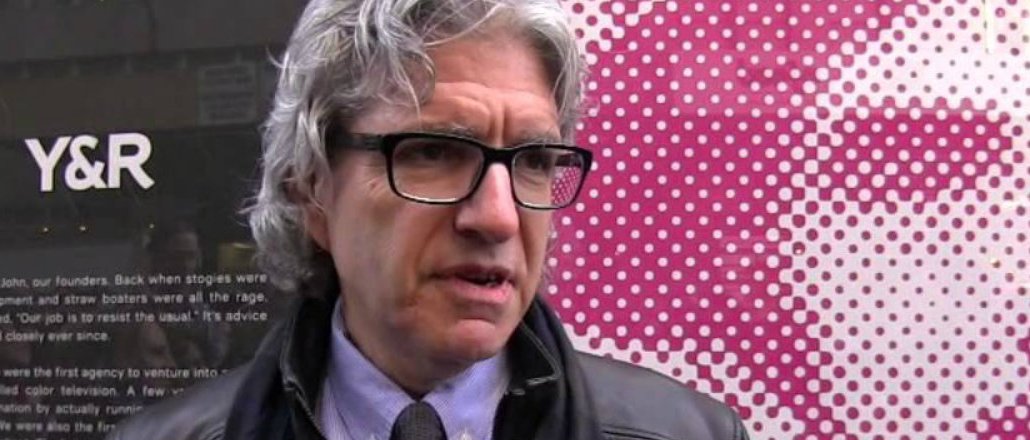Secure your place at the Digiday Media Buying Summit in Nashville, March 2-4
‘There will still be TV thousands of years from now’: Y&R global CEO David Sable

Young & Rubicam’s global CEO David Sable is not worried about the future of television.
“The future of TV is powerful,” he said in a conversation with Digiday following a presentation to advertisers and media companies at DPAA’s Video Everywhere Summit in New York. “There will still be TV thousands of years from now. It might be broadcast into your brain telekinetically, but it will still be TV.”
Sable’s comments come as the TV business starts to report its third-quarter earnings, which have taken on an added air of importance after a particularly brutal second quarter. This summer, as soon as Disney acknowledged that ESPN — the crown jewel in its TV portfolio — was losing subscribers, Wall Street brought the hammer down on all of the major media companies. This immediately led to another catfight between those who think TV is dying and those who defend its relevance.
According to Sable, the proliferation of devices might be fragmenting the TV industry — introducing seemingly thousands of new platforms and screens to watch video content and as a result hurting live TV ratings — but a lot of what is being watched is still TV content. Just because the video is delivered through a different pipe doesn’t mean the content itself isn’t TV.
The popularity of services like Netflix and Hulu is a great example of why the TV business isn’t in danger, as both services have used a combination of licensed and original TV programming to grow billion-dollar businesses. After generating close to $4.5 billion in revenue during the first three quarters of 2015, Netflix is expected to close out the year with $6.1 billion in total streaming revenues. Hulu, meanwhile, is reportedly on pace to pull in between $1.5 billion and $1.7 billion in revenue this year, up from $1.3 billion in 2015.
What’s changing is the definition of what TV is — an important distinction that needs to be made, according to Sable. Even if the content is not produced by a TV studio or distributed by a linear TV network, if it’s considered to be “premium video content,” then it’s still TV.
“Those who still define TV as only ABC, CBS, NBC, you’re out of sync. It’s wrong,” said Sable. “We pine for premium, which is what’s important. So let’s set the record straight: The narrow definition of TV is ‘digibabble.’ TV is the new TV.”
And Sable is not concerned by the growing number of online publishers and video creators. Just look at Vice. “The guys who started with a free magazine in Canada sold [a show] to HBO,” he said. “They’ve now made a deal for a cable network. If that doesn’t make you feel good about the future of this business, nothing anybody can say can possibly bring you around.”
One thing that does concern Sable — at least in terms of what it means for advertisers — is the growing trend of people either paying for content or downloading ad blockers to ignore ads altogether.
“Ad blocking is a problem. It hasn’t hit video yet, but it could,” he said. “Right now, it’s hitting an environment that is woefully poor, not just because of the equality of the ads but also the quality of the tracking. People are being inundated with ads that aren’t targeted as well as they should be, and it’s pissing them off. So they have every right to [make the ads] disappear until we figure out how to actually make things relevant to you. Because people like advertising.”
Really? Yes, Sable insisted. “Ads are only interruptive if it’s interrupting in a way that’s obnoxious,” he said. “Between commercial breaks isn’t interruptive. It’s always been that way, and if it’s really good, I watch it.”
Image via YouTube
More in Marketing

Future of Marketing Briefing: AI’s branding problem is why marketers keep it off the label
The reputational downside is clearer than the branding upside, which makes discretion the safer strategy.

While holdcos build ‘death stars of content,’ indie creative agencies take alternative routes
Indie agencies and the holding company sector were once bound together. The Super Bowl and WPP’s latest remodeling plans show they’re heading in different directions.

How Boll & Branch leverages AI for operational and creative tasks
Boll & Branch first and foremost uses AI to manage workflows across teams.





